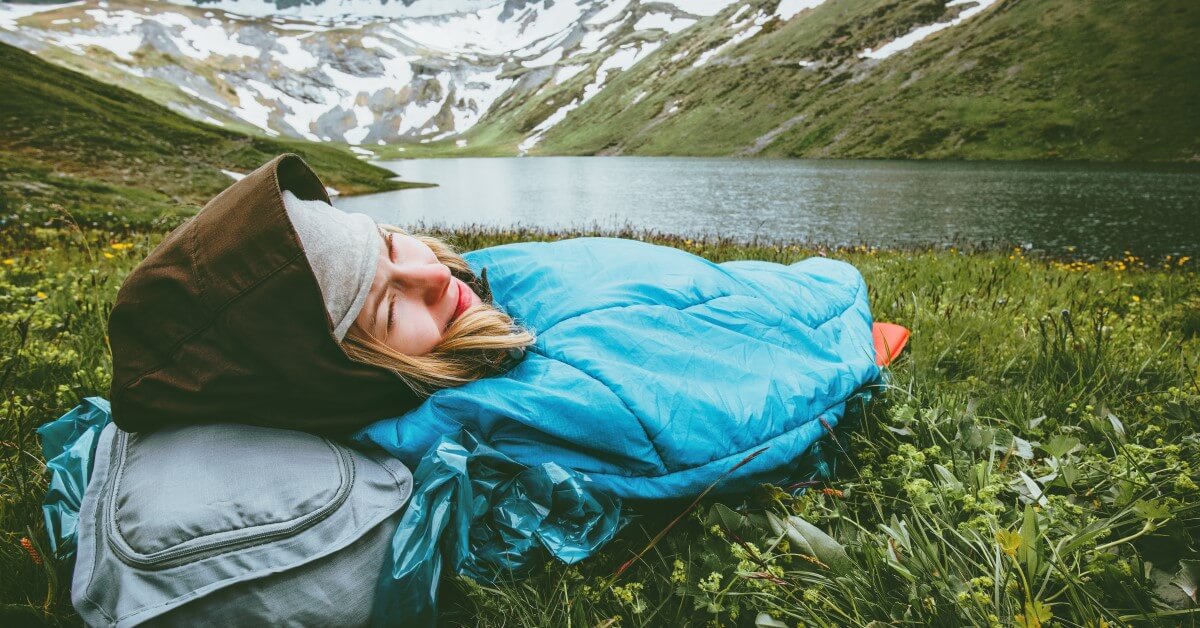Where to Start? | Add These Sleepy Time Favorites to your To Pack List
Introduction
As your vacation date draws near, you become overwhelmed with excitement: sun, sand, and surf here you come!
The day to pack has arrived, and you are crossing off items on your do-not-forget list.
You might reach for some caffeine pills, remembering that being in tourist mode can be an exhausting experience.
Before reaching for your favorite energy-enhancing product, consider revising the list and include items that will help your struggles with sleeping while traveling.
This year, you might not have to drag yourself through days of making memories if you can get enough rest to enjoy them genuinely! We all feel better with a good night’s rest, especially on vacation.
So, what would you bring? There are a few tried and true items and suggestions to make you feel at home.
Where to Start?
To understand what to bring with you, think of how your sleeping routine might become out of sync with your Circadian Rhythm, our internal clock regulating sleep.
This rhythm relies on routine, so naturally, traveling may interfere with its timing. Think of what helps you fall asleep at home. Lavender oil for your temples and something “homey” like a pillow is a good start. Would any of these items fit in your travel bags?
Add These Sleepy Time Favorites to your “To Pack” List
1) Lavender Oil
Lavender oil is an essential oil made from the distillation of lavender flowers. Its aromatic properties are excellent for calming the nerves and mind to go into the first phases of sleep. The scent is known best for inducing a restful state of mind.
2) Ear Plugs, Eye Mask, and Headphones
Studies have shown that using these and similar items as interventions for sleep disturbances is positive and effective.
Consider where you will be traveling and your sleeping arrangements. Perhaps cousin Betty has undiagnosed sleep apnea. Packing earplugs would give you a little reprieve from her nocturnal snorts and snores.
Or, there’s a beautiful hotel room right on the main drag, with flashing neon lights illuminating your room. If your curtains don’t quite close, try having a mask over your eyes to help your brain believe the room is completely dark.
Speaking of bringing things that will remind you more of the comforts of home, if music is something you use to sleep, don’t forget your headphones. Also, as a double bonus, they will drown out background noise you are not used to “hearing” while you sleep.
3) Travel Blanket and Pillow
Traveling means changes in temperatures–whether it be due to the method of travel, like a bus or an airplane-or because your accommodations may be different than those at home.
A helpful hint when packing an extra (smaller) blanket: tie it around the strap of one of your travel bags, or wrap it around your waist to save space!
A travel-sized pillow is helpful, or a regular-sized pillow from home might be an emotional comfort with the scents and feel of home and give you 32extra support should your accommodations be limited on comfort.
Also, it can come in handy in your travels when you need to prop your head up or something to put on your lap, like a food tray or tablet.
Sleeping in an uncomfortable position can give you spurts of sleep, interrupting your natural sleep cycle. It can lead to neck and back pain the next day, putting a wrench in those and your vacation plans.[4] Best to bring a pillow just in case!
4) Antacids/Digestion Aids
Have you ever been traveling and experienced indigestion? It’s vacation, a time to try new foods or enjoy the classic home recipes, a time to enjoy a few extra sweets at different times of the day or night. However, this could affect your digestive process and interrupt your sleep while traveling. Disruption of our regular sleep schedule coincides with our eating routine as well.
Bring some digestion aids to help you enjoy your meals and sleep! Dietary changes can lead to common health disruptions, interrupting your quest for sound sleep. These digestive issues occur with newly introduced foods, fried and spicy foods, and eating close to bedtime.
It’s hard to imagine putting “rest” or “sleep” on your vacation itinerary–however, remember its importance to sail away and enjoy yourself to your fullest extent!
References:
- (n.d.). Circadian. The Free Dictionary. Retrieved June 21, 2022, from https://medical-dictionary.thefreedictionary.com/circadian.
- Goel, N., Kim, H., & Lao, R. P. (2005). An olfactory stimulus modifies nighttime sleep in young men and women. Chronobiology international, 22(5), 889–904. https://doi.org/10.1080/07420520500263276.
- Yazdannik, A. R., Zareie, A., Hasanpour, M., & Kashefi, P. (2014). The effect of earplugs and eye mask on patients’ perceived sleep quality in the intensive care unit. Iranian journal of nursing and midwifery research, 19(6), 673–678.
- Johan, M. (2019, February 22). What happens due to uncomfortable sleep? you need to know. Pillow Idea. Retrieved June 21, 2022, from https://www.pillowidea.com/what-happens-due-to-uncomfortable-sleep/
- Can overeating cause sleep disturbances? Sleep Foundation. (2022, April 19). Retrieved June 21, 2022, from https://www.sleepfoundation.org/physical-health/sleep-and-overeating.







